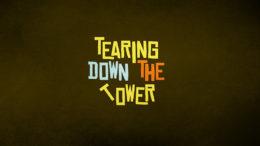
This weekend Greg taught about the difference between the kingdom of this world and the kingdom of God. In the kingdom of God, Jesus is our King (and president) and followers are marked by their indiscriminate love and refusal to rule over others. During this election cycle believers are called to put their trust in Jesus alone and not be pulled into trusting in the rulers of this world. Read More

In this final sermon of the Worth the Risk series, we look at how the cross offends our worldly values, and how we as followers, and the church as a whole, are called to respond to this confrontation. Read More

We often craft together ideal images of of what a “good Christian” family ought to look like. Images of the idealistic post-war, bourgeois nuclear families are more frequently articulated as the “biblical” family. But, is that accurate? Greg provides for us a snapshot of the various families portrayed throughout the biblical narrative. From Adam and Eve to Solomon and his many wives and concubines, to Abraham and Sarah, we gather a sense that “biblical” families are just as messy and dysfunctional as what we may witness today. The hope of the family unit is Christ! The Christ who works within the mess of it all to make something beautiful. Read More

In this third message of our Worth the Risk series, Greg talks about marriage relationships and explores the meaning of Ephesians 5:22, which says that wives must submit to their husbands. Read More

Being made in the image of God means that we are created to make and keep commitments. In this second segment of our Worth the Risk series, Seth explores commitment’s role in our relationships. A kingdom relationship is a creation in and of itself, and that creation requires constant care in the form of honest conversations about the things that come between us. Our tendency is to avoid conflict, confrontation, and rebuke because we believe a lie. We believe we can’t be honest and keep our friendships, but like all forms of deception this lie leads to relational death. Read More

As we continue our summer series on the Holy Spirit, this week Seth explains the role of the Holy Spirit in producing fruit that serves as evidence of a follower’s life in the Kingdom. As a way of understanding the fruits described in Galatians 6, a description and function of the soul is first explored. We use our will not to grit our way into a Jesus looking life, but rather to surrender our life, in order to gain the life the God promises. Our job is to surrender. The Holy Spirit’s job is to produce the fruit in us. Read More

In this, the final part of the Flesh & Blood series, we examine how racial reconciliation is a vital part of the gospel message. To be a Jesus-follower is to be one who seeks peace-making and is always striving towards reconciliation. We discover that we are only able to achieve reconciliation to the degree that we are willing to learn about perspectives that differ from our own. Read More

In this second message of the Flesh and Blood series, Seth describes the unceasing realities of conflict not only in the world in which we live, but also in our own lives; our own relationships, and our own hearts. Walls of conflict exist all around us, and those walls are torn down because one man chose to die. Through Christ’s death, the walls of conflict and separation are torn down. As the head of the church (that is Christ) leads the body (that is the church), the conflicts that divide the world are torn down and truth, justice, mercy and peace become embodied. Read More

This third sermon in our Love. Walk. Do. series focuses on the importance of doing justice. There is always a danger in attempting to find solutions to justice issues with the political system where all solutions are ambiguous in nature. We are called to actively DO justice in our church and communities as a sign-post of the beautiful Kingdom of God because all of humanity has unsurpassable worth. Read More

We all want a place at the top. A place of prominence and authority. From the story of Esau and Jacob, to James and John, to me and to you, the desire for a place at the top can frequently be seen. But for Jesus, a position at the “top of the Kingdom” can only be found through humility. Read More
![]()
"Thank you for this ministry! It has transformed my life in some really radical ways. God has broken down so many barriers and exposed so many lies that have taken some serious burdens from my heart. It has given me hope, freedom and purpose I never could have imagined possible."
– Jenny, from Wisconsin